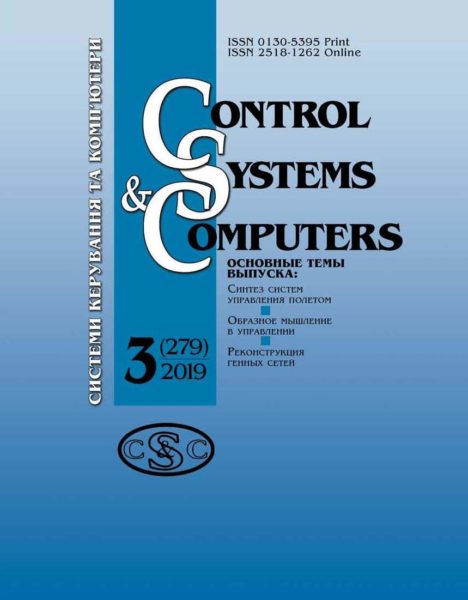Control Systems and Computers, N4, 2019, Article 4
https://doi.org/10.15407/csc.2019.04.035
Control Systems and Computers, 2019, Issue 4 (282), pp. 35-41.
UDK 004.942
I.V. Surovtsev, Dr (Eng.), Senior Researcher, Department of ecological digital systems, International Research and Training Centre of Information Technologies and Systems of the NAS and MES of Ukraine, Acad. Glushkov ave., 40, Kiev, 03187, Ukraine,
igorsur52@gmail.com
O.V. Babak, PhD (Eng.), Senior Researcher, International Research and Training Centre of Information Technologies and Systems of the NAS and MES of Ukraine, Acad. Glushkov ave., 40, Kiev, 03187, Ukraine, babak@irtc.org.ua
V.M. Galimova, PhD in Chemistry, Associate Professor, Senior Lecturer, the Department of Analytical and Bioinorganic Chemistry and Water Quality, National University of Life and Environmental Sciences of Ukraine, Heroiv Oborony Str.17, building 2, of. 16, 18, Kyiv, 03041, Ukraine, Galimova2201@gmail.com
METHODS ESTIMATING THE DEGREE
OF SOIL CONTAMINATION BY HEAVY METALS
IN PRECISION FARMING
Introduction. Precision farming is a new stage in the development of crop technology, especially in industrial areas, where soil pollution with heavy metals is steadily increasing. Its implementation requires the development and putting into practice modern information technologies, including ground-based sensing of the soil for the maintenance of the various toxic elements. At the same time, the task of assessing the quality of the contaminated soil objects requires an exact solution, since optimization of the material resources necessary for soil detoxification for agrotechnical and agrochemical measures depends on it.
Purpose. The purpose of the article is to create the methods for a rough and subtle assessment of a soil area contaminated with heavy metals, as well as the development of a principle for constructing a qualimetric scale similar to the Harrington scale.
Methods. When creating a rough estimation tool, the developed design of a generalized parameter has been used, taking into account the factors of contamination with heavy metals. For fine estimation, a mathematical model has been developed, which allows to assess the degree of contamination.
Results. The developed evaluation methods have shown sufficient efficiency in the processing of computer experiment data.
Conclusions. The developed methods can be used not only for precision farming in agriculture, but also in other areas of science and technology, where it is necessary to assess the quality of objects that do not have a mass character.
Keywords: precision farming, heavy metals, estimation, generalized parameter, pollution index, mathematical model, qualimetric scale.
Download full text! (In Ukrainian)
Keywords: precision farming, heavy metals, estimation, generalized parameter, pollution index, mathematical model, qualimetric scale.
- Yakushev, V.V., 2016. Tochnoe zemledelie: teoriya i praktika. Precision farming: theory and practice. Saint-Petersburg: FGBIUAFI, 364 p. (in Russian).
- Surovtsev, I.V., Babak, O.V., 2019. “Classification of soil plots pollution with heavy metals by the results of a computer experiment”. Control Systems and Computers, 1, pp. 88-94. (in Russian),
https://doi.org/10.15407/usim.2019.01.088 - Harrington, E.C., 1965. “The desirability function industrial quality control”, pp. 494–498.
- Koroleva, S.V., 2011. “Prakticheskiye aspekty ispol’zovaniya funktsii zhelatel’nosti v mediko-biologicheskikh eksperimentakh”. Practical aspects of using the function of desirability in biomedical experiments. Sovremennyye problemy nauki i obrazovaniya, 6, pp. 32–38. (in Russian).
- Adler, Yu.V., Markova, E.V., Granovsky, Y.V., 1976. Planirovaniye eksperimenta pri poiske optimal’nykh usloviy. Planning an experiment when searching for optimal conditions. M.: Nauka, 277 p. (in Russian).
- Babak, O.V., 1997. “On the synthesis of a mathematical model of an object based on a mental experiment”. Kibernetika i vychislitel’naya tekhnika, 108, pp. 76–83. (in Russian).
Received 03.07.2019



